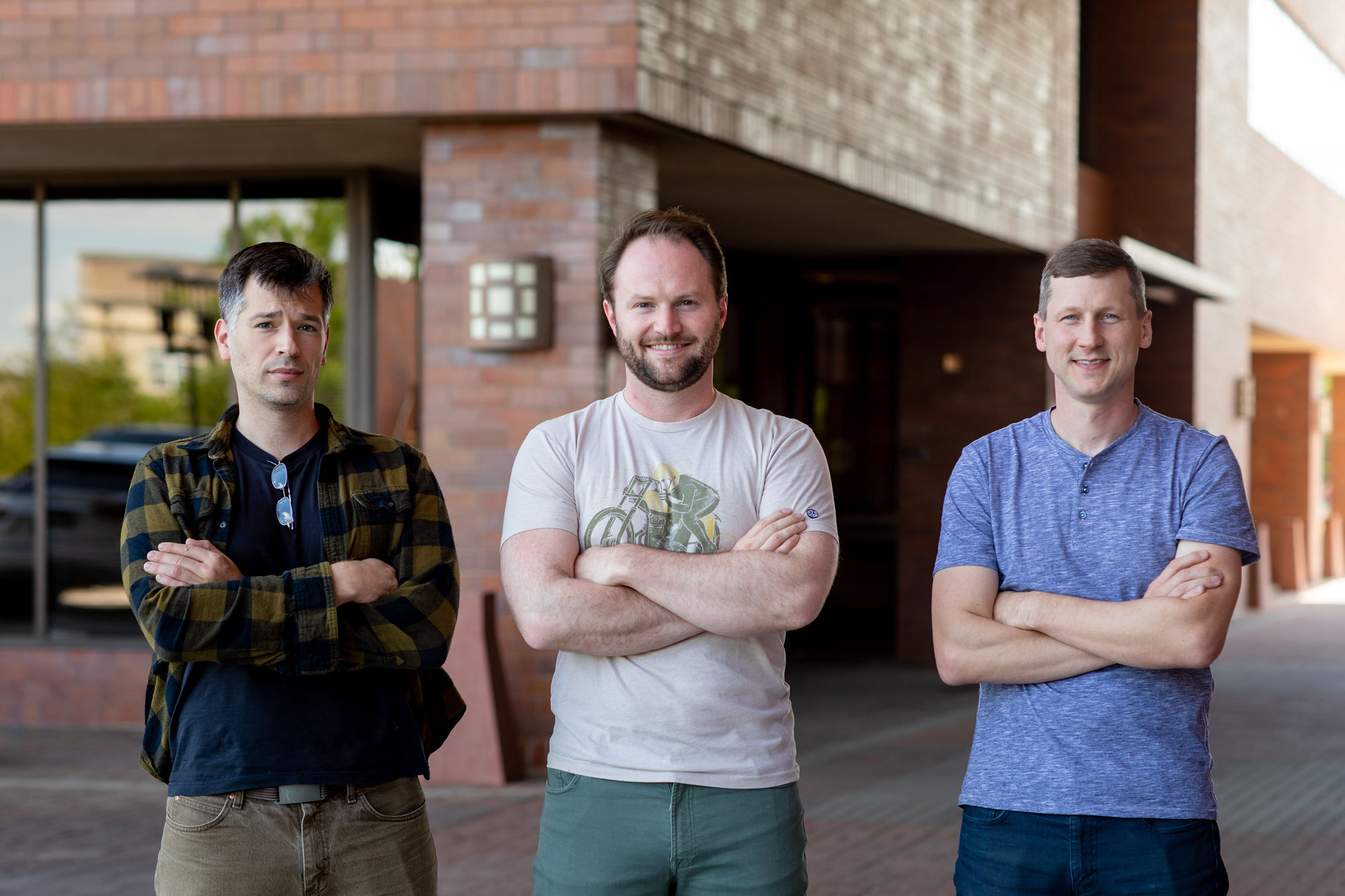As tensions between the United States and China continue to escalate, a new startup has emerged from stealth with millions raised and a plan to send intelligence-gathering pursuit satellites to orbit this year.
Colorado-based True Anomaly was founded last year by a quartet of ex-Space Force members. The company’s set out to supply the Pentagon with defensive tech to protect American assets in space, and to conduct recon on enemy spacecraft. The startup has developed a technology stack that includes training software and “autonomous orbital pursuit vehicles” that will be able to collect video and other data on objects in space.
The company has already raised $30 million in funding to date, including a $17 million Series A led by Eclipse, with participation from Riot Ventures, Champion Hill Ventures, Space.VC and Narya; in addition, True Anomaly scored a direct-to-Phase 2 Small Business Innovation Research (SBIR) grant from Space Systems Command to develop an AI-powered command-and-control center for Space Force Guardians.
According to True Anomaly CEO Even Rogers, there is a critical “information asymmetry” between the U.S. and its adversaries regarding space activities. Such an asymmetry increases the probability of conflict “because it creates conditions for miscalculation,” he said.
One way of thinking about what True Anomaly is trying to do in space is to close that information gap: to travel directly to the source — a Chinese satellite, for example — to capture images of it, and hopefully understand its purpose. To Rogers, a former officer with the U.S. Space Command, such reconnaissance is imperative.
“We have to get absolutely clear about what their intentions are and what their capabilities are so that we can make the right investments and defend ourselves if necessary,” he said.

“The ultimate high ground”
The very idea of military operations in space can spark controversy. To some, space should be neutral ground, where human activity is almost exclusively devoted to scientific research.
But that vision for the space domain has already disappeared, if only due to the rising commercial interest in outer space. Private investors have poured billions into companies looking to exploit the vast reaches of space; NASA, seeing how the tide is turning, has now positioned itself as a key customer of services in low Earth orbit — but as one customer among many in a thriving economy.
For its part, the defense community has long understood space to be the ultimate high ground, a key arena that has major implications for battles waged here on Earth. In recent years, U.S. defense activity in space has only expanded, with former U.S. President Donald Trump signing a bill in 2019 that established the Space Force. Just this year, the White House proposed upping the Space Force’s budget to $30 billion, a $4 billion increase compared to last year.
“The U.S. and its allies and partners have become increasingly dependent on space as a domain to support national objectives and we haven’t faced a real threat to our access to or use of space,” Rogers said. “We have not made the requisite investments in protecting our ability to continue to exploit the [space] domain.”
Much of the reason for that lack of investment can be related to the character of American military activity over the last 20 years, which was dominated by counterinsurgency operations and the War on Terror. China, too, has undergone an unprecedented transformation, marked by staggering economic growth and, more recently, massive investments in next-generation tech like artificial intelligence.
Warfare has also changed, becoming more multi-domain, Rogers said. One can take an action against an adversary in one domain — cyber, for example — that could have an outsized effect on that adversary’s ability to engage in another domain. But the reverse is true as well, he said: “If there’s a vulnerability in one of the domains, that could have strategic implications for your ability and will to fight in other domains.”
All that means security in space has become intrinsic to U.S. defense interests on the ground. But according to True Anomaly, the Space Force’s training and threat replication capabilities are lacking compared to other branches of the military. The startup’s solution is a technology platform that can simulate realistic combat conditions to train war fighters in addition to providing mission management. True Anomaly’s software can also act as a “thinking adversary” capable of mimicking life-like situations.
The Jackal
The most intriguing part of True Anomaly’s plan is its spacecraft — what it calls “autonomous orbital pursuit vehicles,” or Jackals. These satellites could be used to train operators on the ground, or as intelligence-gathering tools against adversarial spacecraft. The startup has a dedicated 35,000-square-foot facility in Denver to manufacture Jackals, and plans on scaling production this year
Rogers was explicit that the company has no plans to equip Jackals with offensive capabilities, like jamming or hacking devices, but its not hard to imagine the possibilities that arise once the challenge of spacecraft rendezvous is truly cracked.
The company, which has already swelled to a 57-person team, plans to launch two Jackals aboard the SpaceX Transporter-9 mission later this year. The main purpose of that mission is to prove the capability of the Jackals while the company seeks partnerships with the Space Force to both receive data from Jackals and even operate them themselves.
Other sectors would also likely benefit from Jackal’s capabilities. The Jackal’s specialty, what’s known as “uncooperative rendezvous and proximity operations,” could be used for in-orbit servicing missions, refueling spacecraft, or inspections and repairs.
“The winners for on-orbit servicing are going to be made in the [Department of Defense] market, because that’s where the hard, procedural and technical problems are,” Rogers said. “We’ll move into the commercial market as we gain traction with the DOD.”































Comment